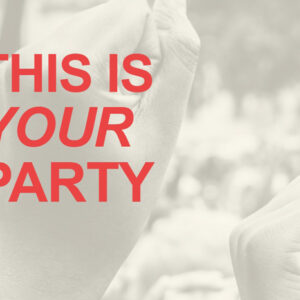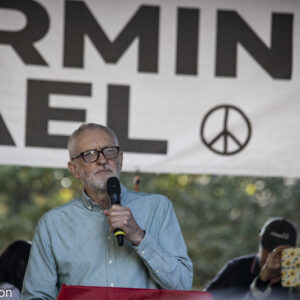Eighty years after the Warsaw Ghetto Uprising on 19 April 1943, when none of those who took part in it is any longer alive, many people continue to ask themselves the same question: how was it that European Jews did not put up more widespread resistance and failed to react sooner in the face of their systematic annihilation by the Nazis?
In fact, this is precisely the question that several Jews put to themselves at the time. In October 1942, after nearly three-hundred thousand Jews had been taken from Warsaw to their deaths in fairly orderly fashion -and with scarcely any problems bearing in mind the scale of the operation-, Emmanuel Ringelbaum, charged with documenting life (and death) in the ghetto, tormented himself with this amalgam of doubt and regret: “We ought to have run out into the street, have set fire to everything in sight, have torn down the walls and escaped to the Other Side. The Germans would have taken their revenge. It would have cost tens of thousands of lives, but not 300.000. […] Why didn’t we resist when they began to resettle 300.000 Jews from Warsaw? Why did we allow ourselves to be led like sleep to the slaughter?”[i]
This phrase from Psalm 44, “as sheep to the slaughter”, has echoed like a leitmotiv through the anguished ruminations of many Jews both then and since.
Before going into this question more deeply, however, a slight amendment needs to be made, as the premiss on which it is based is not entirely correct. Both before and after this revolt, certainly the most significant, there occurred various acts of collective -including armed- resistance in the ghettos and even in some of the extermination camps.
Mention must also be made of the groups that joined the partisans fighting in the German-occupied territories as well as other forms of more passive or individual rebellion, such as running away from the ghettos, escaping from the trains on their way to the gas chambers, and attempts de pass as Arians or hide in the society outside the ghettos.
Moreover, going a little further back in time, it can be seen that from the late 19th century onwards many Jews became fully involved in the fight against the rise of antisemitism, fascism and Nazism in the countries where they lived. They also made up around ten per cent of the International Brigades in the Spanish Civil War, regarded as the last chance to stop fascism, although most of them did not take part as Jews, but as members of secular organisations standing for universal values such as democracy or socialism.
All these caveats notwithstanding, if we concentrate on Poland, where the Nazis liquidated almost the whole Jewish population of three million, raising the question still makes sense today.
Why so little resistance?
Of course, there is no simple answer. One of the commonest explanations suggests a combination of deception and self-deception. The Nazis did everything they could to conceal their intentions, sowing false hopes, introducing divisions among the population (those who are productive will be saved), promising resettlement with fresh opportunities and going so far as to organise the sending of postcards and letters from Jews extoling the virtues of their new destinations. Given all this, it was hard to believe the enormity of the stories appearing in the ghetto’s underground press based on testimony from camp escapees or information provided by the Polish resistance. “That could never happen here”.
Another major factor was isolation, not just the relative segregation of Jews from the rest of society before the occupation, followed by complete physical separation with the herding into ghettos under the occupation, but also the lack of any outside referent or support, such as a government in exile.
Inside the ghetto the Jewish police exercised strict control and carried out the Germans’ orders, conveyed through the Judenrat, or Jewish Council, spurred on by offers of immunity or on pain of severe punishment if they failed to comply. Nor were the Germans loath to employ horrifying threats or the most brutal punitive measures, sometimes selectively, others completely arbitrarily.
Some explanations seek deeper causes and refer to a tradition of adaptation, of avoiding “provocation”, of damage limitation. In the ghetto this attitude was embodied by the Judenrat, composed precisely of those elements of the community who had staked everything on complete cooperation with the German administration.
Change of outlook
It was mainly young people that broke with this “tradition”. “To modern secularists the Jewish tradition of martyrdom, kiddush ha-shem [sanctification of the Name], was the epitome of the Diaspora fate against which they rebelled.”[ii]
To begin with, a large part of the Ghetto population regarded them as irresponsible and looked on them with scepticism or fear. Nevertheless, as the Jewish Combat Organisation (ŻOB), comprising different left-wing political groups, both Zionist and anti-Zionist, gradually eliminated some of the most hated Jewish police and collaborators, its prestige and support grew while the Judenrat’s declined to the point where the latter’s chairperson told the Germans: “I have no power in the ghetto. Another authority rules here”.[iii]
It was to a large extent this turnaround that enabled the ŻOB to prepare for the final showdown. With great difficulty it managed to obtain a few weapons and also persuaded thousands of people to build underground bunkers that would give them some protection. It is worth noting in passing that such an extreme situation had barely blurred class differences: “the well-to-do Jews enjoyed considerably more luxurious dugouts than the poor”.[iv]
It should be borne in mind that by then 85% of the Jews that had been crammed into the ghetto were dead -some 265,000 murdered in the extermination camps, the rest dying in the ghetto of hunger, of contagious diseases or shot- and that of the seventy or eighty thousand that remained, half had registered with the authorities, while the other half had gone into hiding.
The last stand
When the Nazis entered the ghetto on 19 April 1943, eve of the Jewish Passover, to begin deporting the remaining 15%, they ran into the armed groups that were waiting for them and were forced to withdraw. Naturally, in spite of their initial surprise, they weren’t long in returning and went about the job of liquidating those still left without the slightest compunction. They cut off the water, gas and electricity supply, set fire to all the buildings and filled the underground network of bunkers and sewers with smoke.
By the time the operation had concluded on 16 May with the blowing up of the Great Synagogue (“an unforgettable tribute to our triumph over the Jews”),[v] some 57 thousand Jews had been captured or killed -shot, burnt to death in the fires or buried under the debris of collapsed buildings-, and about five or six thousand had fled (although most of these were caught later). A few dozen ŻOB members, including Zivia Lubetkin, one of its founders, and Marek Edelman, another of its leaders (who we will come back to later), survived and made their way out of the ghetto through the sewers. In the summer of 1944, some of them were even able to join in the Warsaw uprising led by the Polish Home Army, which had given them some weapons to use in their uprising the year before.
In contrast, according to the report by Jürgen Stroop, who had been specifically tasked with carrying out the final stage of the operation, the Germans (and the troops of other nationalities assisting them) suffered just 17 dead and 93 wounded, although other sources give notably higher figures.
So, what assessment can be made of this belated, albeit determined, last stand?
The meaning of the uprising: a feat of purely nationalist heroism…?
In the opinion of Raul Hilberg, the Holocaust’s outstanding historian, this encounter had no consequences as far as the subsequent unfolding of the destruction process was concerned. In Jewish history, however, it represented a revolution, since after two thousand years of a policy of submission the wheel turned and Jews employed force once again.
Indeed, the Jews -a few hundred young men and women, at least- used force, arms, violence… and did so with absolute legitimacy. Since then, almost no-one has dared dispute that they were fully justified. Nonetheless, there is a need to question whether this legitimacy is “transferable”, as suggested, for example, by Yisrael Gutman, a survivor of the ghetto and former head historian of the International Institute for Holocaust Research at Yad Vashem, the Israeli centre set up to “safeguard the memory of the past and impart its meaning for future generations”.[vi] According to him, “[t]he revolt in the Warsaw ghetto, and the revolts in the ghettos in general, became a symbol for those who fought for the independence of Israel”.[vii] Or, in the words of Dina Porat, current chief historian at Yad Vashem, “a source of pride for the survivors and the entire Jewish nation”.[viii]
Former Israeli prime minister Abba Eban was another of those who sought to appropriate this heroic episode for the benefit of the Zionist project. For him, “[t]he most positive force to rise from the ashes of the Holocaust was the ‘new Jew’ – the Jew who would no longer passively accept his fate, who would fight to survive […] The most outstanding example of this new Jewish attitude was the Warsaw ghetto”.[ix]
Viewed from the present day, it is hard not to be disturbed by the contemporary insight of a member of HaShomer HaTzair (Young Guard) who detected in some of the ghetto population the perverse effect that mistreatment can have on its victims: “deep in their hearts burns a dream: to be like [the Germans] — handsome, strong and self-confident. To be able to kick, beat and insult, unpunished. To despise others, as the Germans despise Jews today.”[x] Imitating the abusers by “taking revenge” on an innocent scapegoat is not an inevitable outcome, but it becomes more likely if the supposed interests of one’s own nation are placed above those of any other.
… or an internationalist and universal one?
As Idith Zertal says, “[n]ationalizingthe ghetto uprisingswas a way of nationalizing the narrative and removing all the contradictory, non-Zionist elements […] The fact that the umbrella organizations involved in the rebellion included all the political parties was minimized or obscured.”[xi]
The Encyclopaedia of the Holocaust, edited by Gutman, hardly mentions Marek Edelman, despite the latter’s leading role in the revolt. The Ghetto Fights,[xii] Edelman’s account of the uprising, the only one written by somebody directly involved, was published in Poland in 1945, yet it didn’t come out in Israel until 2001. It is not unreasonable to surmise this had something to do with his membership of the Bund, a secular Jewish socialist party strongly opposed to emigration to Palestine as advocated by the Zionists, which it saw as uncomfortably similar to the mass migration (to anywhere) put forward by the pre-war Polish regime as a solution to “the Jewish problem”.
It is true that most of the organisations in the ŻOB were Zionist and that its commander, 24-year-old Mordecai Anielewicz, belonged to HaShomer HaTzair, a socialist-Zionist party. However, the ŻOB saw its fight as part of a broader struggle against Nazism together with others, whereas the Jewish Military Union (ŻZW), essentially made up of right-wing Zionists with a strictly nationalist approach, kept themselves separate.
Thus, the famous proclamation issued by the ŻOB on 23 April 1943, addressed beyond the ghetto to “Poles, citizens, freedom fighters”, emphatically refutes the particular nature of its fight: “A battle is being waged for your freedom as well as ours. For your and our human, civic and national honour and integrity”.[xiii]
Relevance for another resistance struggle
But if the Warsaw ghetto rebellion against the Nazis’ systematic extermination programme cannot in any way be used to justify or excuse the State of Israel’s unabated oppression and expropriation of the Palestinian people, it may furnish a valid comparison that would vindicate resistance by Palestinians to this relentless treatment.
It goes without saying that it is not a matter of establishing an equivalence between the Holocaust and the Nakba. The methodical annihilation of six million people (not only Jews) because of their classification as an inferior race -a paradigmatic case of genocide- is of an order of magnitude and abomination that bears few comparisons. Even so, the similarly methodical ethnic cleansing, collective punishments, occupation and appropriation of territory, discrimination and persecution implemented by the State of Israel (and the proto-State that preceded it) are facts which, if we were to apply the same criteria to them, would amply legitimise Palestinian resistance, not against “the Jews”, but against the State that falsely claims to speak and act in their name.
And that is how Marek Edelman saw it. In 2002, introducing himself as “the former vice commander of the Jewish Fighting Organization […] one of the leaders of the Warsaw Ghetto Uprising”, he sent a letter “to all the commanders of Palestinian military, paramilitary and guerrilla organizations; to all the soldiers in Palestinian combatant organizations”.[xiv] In other words, in treating them in this way as equals he implicitly acknowledged the legitimacy of their struggle. The fact that in this letter he “allowed himself the liberty” to criticise, very respectfully, some of their actions (in particular the suicide attacks against civilians), only reinforces this recognition.
In addition, having become a cardiologist, he established contact with Mustafa Barghouti, president of the Union of Palestinian Medical Relief Committees, and supported Marwan Barghouti, one of the leaders of the two intifadas, sentenced to five cumulative life sentences following a controversial trial.
Unlike some other ŻOB survivors, who set up a kibbutz called Lohamei HaGeta’ot, The Ghetto Fighters, Edelman lived all his life in Poland, always maintaining a critical and independent attitude. On the occasion of the 45th anniversary of the uprising, he refused to attend the official commemoration with Poland’s Stalinist authorities and Zionist dignitaries from Israel, preferring instead an alternative ceremony in honour of two Bundist leaders murdered on Stalin’s orders during the war. As he put it: “Being a Jew means always being with the oppressed, never the oppressors”.
Today, it would seem that most of the people in Israel and the Palestinian occupied territories who identify themselves as Jewish do not feel that this maxim (or he one used, though not coined, by Marx according to which a nation that oppresses another can never be free) applies to them. Elsewhere, however, the number of Jews questioning not just the policies of the particular Israeli government in power at any one time, but Zionism itself as a settler colonial project, with its corollary of “creeping genocide”, has continued to grow, as has solidarity with the Palestinians.
Palestinian self-determination cannot be achieved from the outside, but that doesn’t mean the left should leave the Palestinians to struggle on their own, as happened to the ghetto fighters in their desperate combat against an incomparably more powerful adversary. In view of the stepped-up repression, mobilisations around Nakba Day, 15 May, need to be built with the utmost energy and urgency.
Footnotes
[i] Raul Hilberg, The Destruction of the European Jews, Holmes & Meier, Nova York, 1985.
ii Lucy S. Dawidowicz, The War against the Jews 1933-45, Penguin Books, London, 1990.
[iii] See Yitzhak Zuckerman: The Creation and Development of ŻOB, in Lucy S. Dawidowicz, A Holocaust Reader, Behrman House Inc., West Orange, N.J., 1976.
[iv] Hilberg, op. cit.
[v] Jürgen Stroop, quoted in Kazimierz Moczarski, Conversations with an Executioner, 1981. https://en.wikipedia.org/wiki/J%C3%BCrgen_Stroop
[vi] https://www.milsteinff.org/supported-organizations/american-society-for-yad-vashem-inc/
[vii] https://www.myjewishlearning.com/article/warsaw-ghetto-uprising/
[viii] https://www.yadvashem.org/remembrance/archive/central-theme/defiance-and-rebellion-during-the-holocaust.html
[ix] Abba Eban, quoted by John Rose in his introduction to Marek Edelman, The Ghetto Fights, Bookmarks, Londres, Chicago, Melbourne, 1990.
[x] Shmuel Braslaw, quoted by Marcus Barnett, Remembering the Warsaw Ghetto Uprising, Jacobin, 04-19-2017 https://jacobin.com/2017/04/warsaw-ghetto-uprising-anniversary-socialists-radicals
[xi] Idith Zertal, Israel’s Holocaust and the Politics of Nationhood, Cambridge University Press, 2005.
[xii] Marek Edelman, The Ghetto Fights, Bookmarks, 1990
[xiii] In Lucy S. Dawidowicz, A Holocaust Reader, Behrman House Inc., West Orange, N.J., 1976.
[xiv] https://otwarta.org/en/wp-content/uploads/2014/08/To-all-leaders-of-Palestinian-military-organizations.pdf
Art Book Review Books Capitalism China Climate Emergency Conservative Government Conservative Party COVID-19 EcoSocialism Elections Europe Fascism Film Film Review France Gaza Imperialism Israel Italy Keir Starmer Labour Party Long Read Marxism Marxist Theory Palestine pandemic Protest Russia Solidarity Statement Trade Unionism Ukraine United States of America War
Latest Articles
- Your Party Founding ConferenceFind all the key information from Anti*Capitalist Resistance for the Your Party Founding Conference. Below is the rolling blog for updates throughout conference.
- Britain – difficulties and opportunities…This article by Veronica Fagan was written for the French magazine of the Fourth Internal, Inprecor. It therefore focuses on big picture developments in Britain but we think its also of interest to comrades here.
- Budget: Progressive package or dog’s dinnerDave Kellaway gives an initial response to the budget
- Ecosocialism or Extinction: defending life, building free territories and Ecosocialism from and for the PeoplesA powerful statement for radical change agreed at the Second Ecosocialist Meeting, Belém, Brazil, November 2025
- We need to talk about the Labour PartyDave Kellaway reviews and discusses the issues raised by The Starmer Symptom edited by Mark Perryman and published by Pluto Press, 2025






